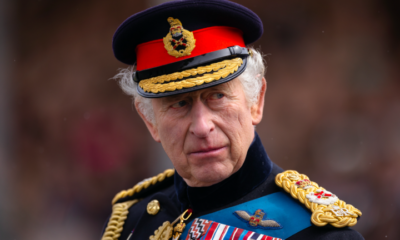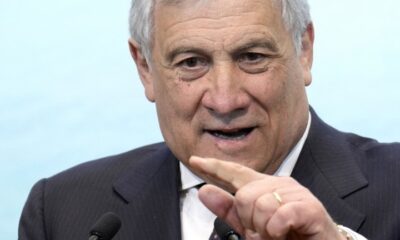POLITICS
First Corbyn, now Sanders: Why the Transatlantic democratic socialist wave is not to be
Published
4 years agoon
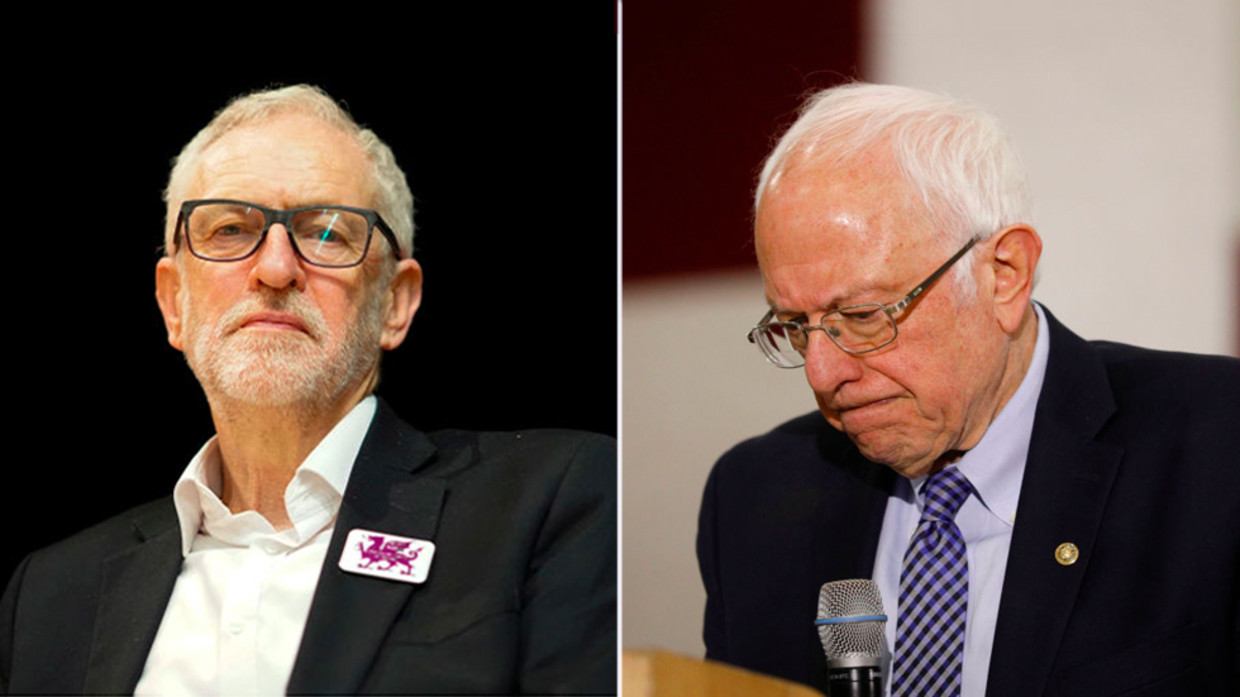
With Keir Starmer replacing Jeremy Corbyn as leader of the UK Labour Party, and Bernie Sanders suspending his campaign in the US, the wave of democratic socialism, which seemed capable of reshaping both the US and UK, has receded.
There are four major reasons why: the limits to which such movements can broaden their base, timing and events, ideological inflexibility in the face of criticism, and attempts to weaponize PC identity politics along with their more mainstream colleagues, which were undermined in the public eye by contradictions like the scandal around anti-Semitism in the UK Labour Party, and the obnoxious behaviour of some of the ‘Bernie Bros’ in the US.
In late 2019, the opposition Labour Party in the UK, led by a self-identified democratic socialist, was running level with the government in the polls. A few months later in the United States, a self-identified democratic socialist leading a fervent, well-funded and well-organised grass-roots movement seemed poised to capture the Democratic nomination for president, and was performing well in hypothetical match-ups in key states against the incumbent. For a moment, it looked like both the US and UK might be transformed by socialist-influenced administrations.
Jeremy Corbyn was elected as leader of the UK Labour Party in September 2015. He supported a higher rate of income tax for the wealthiest in society, advocated for re-nationalisation of public utilities and the railways, a less interventionist military policy, and reversals of austerity cuts to welfare and public services. In education, he put forward a policy to scrap all tuition fees. When asked if he regarded himself as a Marxist, Corbyn responded by saying: “That is a very interesting question actually… I haven’t really read as much of Marx as we should have done.” Similarly, defending John McDonnell’s statement that there is “a lot to learn” from Karl Marx’s book Das Kapital, Corbyn described Marx as a “great economist.” In the 2017 general election, Labour increased its share of the vote. The result was so impressive that it forced the Conservatives to form a minority government. As late as August of 2019, Labour was running about even with the Conservatives in the polls. In October, Prime Minister Boris Johnson called for an election, to be held just before Christmas. Labour received its lowest number of seats since 1935. The result led to Corbyn’s announcement that he would stand down as Labour leader. Now, with Keir Starmer’s election as leader, the party is set to return to the center.
In the US, former Vice President Joe Biden was the nominal front-runner for the Democratic nomination for all of 2019. A string of average debate performances, the entry of Mike Bloomberg into the race, the division of the center lane as the party cast around for an ideal candidate, all combined to allow the democratic socialist, Bernie Sanders, already well financed and well organised, to emerge as the frontrunner, seemingly poised with irresistible momentum, after early victories, to gain a huge haul of delegates on Super Tuesday. As late as 24 hours before that major string of contests, he was leading in delegate-rich states, and seemed about to rack-up something close to an insurmountable lead. A last-minute coalescing of the establishment around Biden turned the tables, with Biden now the presumptive nominee. The democratic socialist, having pushed centrist Hillary Clinton hard in 2016, and having reached the same limits of coalition-building as then, dropped out last night.
Either Corbyn or Sanders winning power would have been socially transformational; especially in the UK, where the government is not burdened by the Senate filibuster. Either major economic powerhouse may have had the government take charge of the means of production, in some approximation of a command economy. The US would have seen an attempt at a multi-trillion-dollar reshaping of the healthcare system – one sixth of the economy – to the eradication of all private healthcare. Both would have seen a once-in-several-generations redistribution of wealth.
Also on rt.com Sanders sinks again: The populist Democrat departs the race just when his message was most relevant
They failed for several reasons. The first is that, with Sanders vs Biden being, in many ways, Sanders vs Clinton redux, we are seeing again the limits of movement politics, the extent of expansion, the pre-eminence of the establishment, and the ability of the establishment to move with facility and cohesion to supervene at critical junctures. Secondly, ideological obstinacy is a double-edged sword. As leaders of pure ideological movements, the likes of Corbyn and Sanders often have a blind spot where they confuse inflexibility with authenticity. In Sanders’ case, this manifested itself as an inability to recognise any danger in failing to qualify his praise of aspects of the Castro regime, at a critical time when vast numbers of observers and voters were becoming increasingly anxious about Sanders’ rise. Thirdly, such movements are vulnerable to, and not particularly agile at, adapting to major events: in Corbyn’s case, Brexit became a complicating and overshadowing saga, which he responded to in an ambivalent way. When it became the dominant issue, requiring an emphatic response, movement politics became a secondary priority to the public. In Sanders’ case, ideological purity became secondary to the chief consideration registered by Democratic voters in polls: the need to defeat Donald Trump. Lastly, these progressive movements have hypocritical contradictions: an undertow of anti-Semitism in the UK Labour Party, the occasional misogynistic tendencies of some of the ‘Bernie-Bros,’ combined with ‘woke’ identity politics that can, and have attempted to, vindictively suppress opposing views through ‘cancel-culture.’
The vast numbers who follow Bernie Sanders will not disappear; but Sanders has been a singular figure: unerring in his message, and amassing support over decades. There is no obvious successor. The UK Labour Party, languishing under Corbyn, and alienating its working-class base with identity politics, will not be returning to the far-left for the foreseeable future. The notion of a Transatlantic ascendancy of democratic socialism, radically reshaping the US and the UK, seemed a realistic proposition for a whole year. That high tide has now receded.
Think your friends would be interested? Share this story!
You may like
POLITICS
Erdogan election defeat would be ‘revenge’ – Syrian Kurds
Published
12 months agoon
May 23, 2023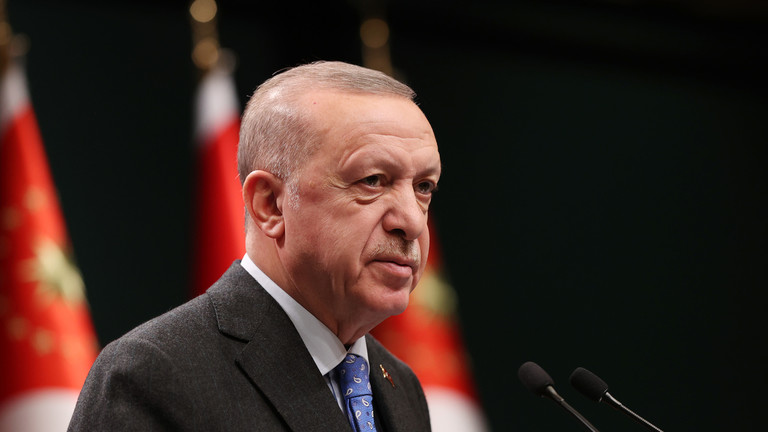
The YPG claims the Turkish president failing to win another term would be payback for Ankara’s counter-terrorism operations in Syria
President Recep Tayyip Erdogan’s defeat in this month’s presidential election would serve as “revenge” for Türkiye’s military operations in Syria, a top official of the People’s Defense Units (YPG) has said.
Salih Muslim, one of the leaders of the YPG — a Syrian militant group affiliated with the Turkish Kurdistan Workers Party (PKK) and designated by Ankara as a terrorist organization — said in an interview with Medya Haber Kurdish TV channel that his organization has grown frustrated with Türkiye’s counterterrorism operations ongoing in the northern part of Syria since 2016, Daily Sabah reported.
“Now, we have an opportunity in our hands,” Muslim said, stressing that the YPG is eager to see Erdogan unseated. “It’s the first time we have such a thing happening in elections.” He added that “If we can win at the ballot box, we will take all the revenge from [the defeat of] one person.”
Muslim’s statement comes as several members of the YPG and the PKK have openly expressed support for Erdogan’s main challenger, Kemal Kilicdaroglu, as the two head into a runoff election on May 28. In the previous round, held on May 14, both candidates failed to secure an outright majority with Erdogan gaining just over 49.4% of the vote while Kilicdaroglu received 44.96%.
Kilicdaroglu has vowed to mend Ankara’s relations with NATO and revive Türkiye’s EU membership talks, which have been effectively stalled since 2016. He has also accused Russia of spreading “conspiracies” and “deep fakes” apparently referring to footage circulating online purportedly linking him to the PKK, and told Moscow to get its “hands off the Turkish state.” Russia has rejected the accusations.
Somalis cheer on Türkiye’s Erdogan to win re-election
Erdogan has repeatedly accused his rival of “colluding with terrorists” and threatening to undo Türkiye’s achievements in its war on terror. He has also blasted Kilicdaroglu for trying to “detach” the country from Russia.
Türkiye has been waging low-intensity warfare against Kurdish militias along its Syrian and Iraqi borders for four decades, in a back-and-forth campaign that has claimed the lives of over 40,000 people.
The PKK and its affiliates have been waging an insurgency since 1984 demanding political and cultural autonomy with the final goal of establishing an independent Kurdish State, laying claim to territories in southeast Türkiye and northern parts of Iraq and Syria.
You can share this story on social media:
PLEASANT MUSIC FOR YOUR CAFE, BAR, RESTAURANT, SWEET SHOP, HOME
SUITABLE MUSIC FOR YOGA LOVERS
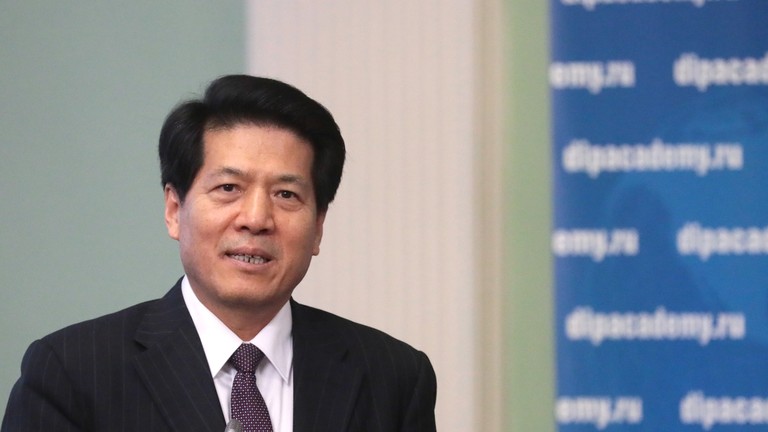
Li Hui visited Kiev to share Beijing’s views on a political settlement to the Ukraine crisis
Ukrainian President Vladimir Zelensky has met with China’s newly appointed special envoy for Eurasian affairs, Li Hui, who traveled to Kiev to convey Beijing’s views on a diplomatic resolution to Ukraine’s conflict with Russia.
According to a statement published on Thursday by the Chinese Foreign Ministry, Li held talks with Zelensky as well as the head of the Ukrainian President’s Office, Andrey Yermak, Foreign Minister Dmitry Kuleba, and representatives from several other ministries.
Beijing said both sides had agreed that the recent phone call between Chinese President Xi Jinping and Zelensky had outlined the direction for future relations between their two nations, which it stated should be built on mutual respect and sincerity.
During his trip, Li reiterated that Beijing is willing to serve as a peace broker to help reach a political resolution to the conflict with Russia, based on the principles outlined in a 12-point roadmap published by China in late February.
“There is no panacea in resolving the crisis. All parties need to start from themselves, accumulate mutual trust, and create conditions for ending the war and engaging in peace talks,” Li said, according to the Chinese Foreign Ministry’s statement.
The special envoy’s two-day trip to Ukraine is the first leg of a wider European tour, during which he is expected to visit Poland, France, Germany, and Russia. Beijing has explained that the trip aims to promote communication toward “a political settlement of the Ukraine crisis.”
Hungary backs Chinese plan for Ukraine
China’s peace efforts have been welcomed by Russia as well as some European nations such as Hungary, and have been praised for acknowledging the national interests of both parties.
The roadmap, however, has been criticized by some in the West. NATO Secretary General Jens Stoltenberg claimed that China lacked “credibility” as it has refused to condemn Russia’s actions in Ukraine. EU foreign policy chief Josep Borrell insisted that “the only thing that can be called a peace plan is Zelensky’s proposal.”
The Ukrainian president has demanded that Russia must withdraw from territories that Kiev claims as its own, as well as pay war reparations and face an international tribunal. The Kremlin has dismissed the initiative, claiming it does not take into consideration “the realities on the ground,” including the new status of four former Ukrainian regions as part of Russia.
You can share this story on social media:
PLEASANT MUSIC FOR YOUR CAFE, BAR, RESTAURANT, SWEET SHOP, HOME
SUITABLE MUSIC FOR YOGA LOVERS
POLITICS
Pakistan’s top court orders release of former PM Imran Khan
Published
1 year agoon
May 12, 2023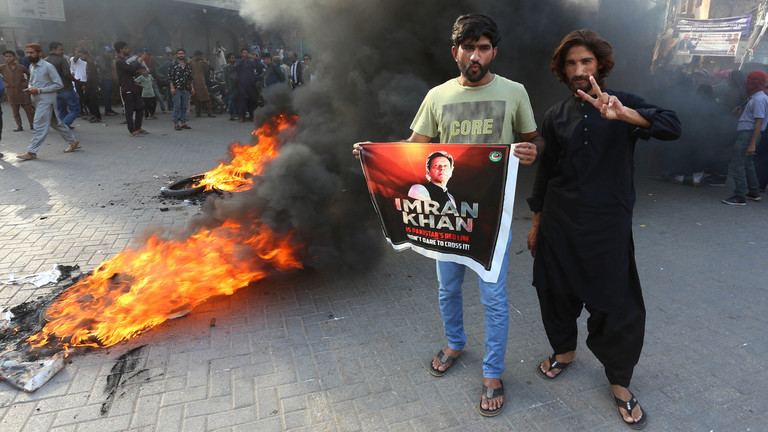
Pakistan’s Supreme Court has ordered the release of former prime minister Imran Khan, whose arrest earlier this week triggered deadly protests across the country, Geo TV news channel has reported.
The court considered an appeal by Khan’s legal team on Thursday, ruling that the arrest of the opposition figure was illegal, according to the broadcaster.
The leader of the Pakistan Tehreek-e-Insaf (PTI) party was detained on an order from the National Accountability Bureau (NAB) on Tuesday as soon as he arrived at a lower court in connection with a graft case against him. He has been held at a police compound in the capital, Islamabad, since then.
Khan’s spokesperson told Al Jazeera that the 70-year-old was apprehended in court before he could even appear before the judges, which was “in violation of all laws.” The PTI party claimed that it was not an arrest, but “an abduction,” and called on its supporters to take the streets.

Pakistan deploys army after Imran Khan’s arrest
Pakistan has been gripped by violent protests for the last three days, with demonstrators clashing with security forces and setting government buildings on fire in major cities across the country. The government of Prime Minister Shehbaz Sharif has deployed the military in an attempt to curb the unrest.
Some 2,500 of Khan’s supporters, including some top figures in his party, have been arrested so far. Local media have reported at least 11 protesters killed and hundreds of police officers wounded.
Numerous criminal cases have been launched against Khan since his removal from office after a no-confidence vote in April 2022. The PTI leader, who remains highly popular in the country, denies all accusations against him.
The politician claimed a year ago that he had been deposed as a result of a US-led “international conspiracy” and accused his opponents of receiving money from foreign forces.
Khan has been making active attempts to return to power since then, staging massive rallies across the country. The former premier survived an assassination attempt last November, escaping with a non-life-threatening leg wound after several bullets were fired at him.
You can share this story on social media:
PLEASANT MUSIC FOR YOUR CAFE, BAR, RESTAURANT, SWEET SHOP, HOME
SUITABLE MUSIC FOR YOGA LOVERS



Global debt balloons to record highs

German military to sell tons of toilet paper

First female Saudi astronaut heads to space

Nigeria takes step to combat fuel shortages

US will default if debt deal fails – treasury secretary

Village People demand Trump stop using their music

Hollywood star pulls out of hosting awards show amid strike

Rock icon slams German authorities

Agatha Christie novels chopped by ‘sensitivity readers’ – media

Marvel star back in training after breaking over 30 bones

Turkish minister escapes fire blast (VIDEO)

Trump savages pop star’s Super Bowl performance

Alec Baldwin sued by Ukrainian family of slain cinematographer

Duran Duran stumbles, Dolly Parton rolls into Rock Hall

Sweden probes possible plot behind Russian pipeline leaks

FINANCE


Global debt balloons to record highs
It’s now $45 trillion higher than its pre-pandemic level and is expected to continue growing rapidly, a top trade body...


Nigeria takes step to combat fuel shortages
The West African country has built a giant oil refinery to cover domestic demand Nigeria will commission its new Dangote...


US will default if debt deal fails – treasury secretary
The current borrowing limit is a constraint on Washington’s ability to meet its obligations, Janet Yellen insists America’s chances of...


Facebook parent Meta fined €1.2 billion by Irish watchdog
The American tech company has been accused of violating EU data privacy rules US tech giant Meta has been hit...


UK’s business with sanctioned country booming
Trade between Britain and Iran has reached the highest level in a decade, according to official data, apparently having been...

POLITICS


Erdogan election defeat would be ‘revenge’ – Syrian Kurds
The YPG claims the Turkish president failing to win another term would be payback for Ankara’s counter-terrorism operations in Syria...


Chinese special envoy meets with Zelensky
Li Hui visited Kiev to share Beijing’s views on a political settlement to the Ukraine crisis Ukrainian President Vladimir Zelensky...


Pakistan’s top court orders release of former PM Imran Khan
Pakistan’s Supreme Court has ordered the release of former prime minister Imran Khan, whose arrest earlier this week triggered deadly...


Kamala Harris to run AI taskforce
The US vice president will ask AI execs to evaluate the safety and fairness of their models US Vice President...
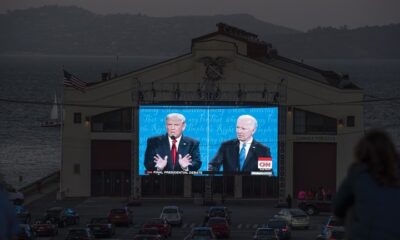

Most Americans want to move on from Biden and Trump – poll
70% of respondents said the incumbent shouldn’t bid for office in 2024, with that figure 60% for the Republican former...

OPINION


Disgraced ex-PM Liz Truss seeks to ruin any hopes for normal UK-China ties
The former premier’s Taiwan trip is nothing but a provocation for Beijing to lash out at London, sinking any constructive...


India facing challenge to steer SCO agenda away from Western-dominated frameworks
The Shanghai Cooperation Organisation is looking at ways to address the most pressing global issues without being a disruptive influence...


China isn’t the biggest threat to Italy’s prosperity
Rome is considering leaving the Belt and Road Initiative in a move which will place virtue signaling to other Western...


Meet the Czech lawyer who rallies thousands to shake up the EU establishment
In mid-April, a fledgling political party that recently formed in the Czech Republic called Pravo Respekt Odbornost (Law Respect Expertise;...


UK shows signs of good will to China, but it’s not the one calling the shots in this relationship
The British foreign secretary says antagonizing Beijing goes against London’s ‘national interests’, but Washington has other ideas British Foreign Secretary...

LIFE


conic Smiths bassist dies aged 59
The bassist with legendary English rock band The Smiths, Andy Rourke, has died at the age of 59, the group’s...


Village People demand Trump stop using their music
A viral video emerged last week of Donald Trump dancing to a Village People song at his Florida estate Village...


Hollywood star pulls out of hosting awards show amid strike
Drew Barrymore is stepping down as host of this year’s MTV Movie & Music Awards, due to be held on...
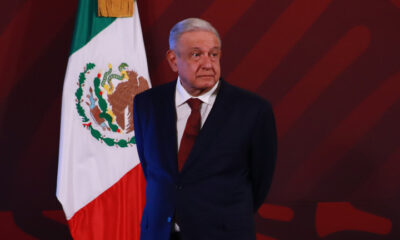

Mexico condemns US ‘interference’ in drug war
The DEA’s infiltration of the Sinaloa Cartel without state permission amounts to espionage, the Mexican president says Mexican President Andres...


Rock icon slams German authorities
Pink Floyd co-founder Roger Waters criticized the city of Frankfurt for canceling his concert and vowed to take legal action...



Trending
-

 FINANCE12 months ago
FINANCE12 months agoFacebook parent Meta fined €1.2 billion by Irish watchdog
-

 LIFE12 months ago
LIFE12 months agoconic Smiths bassist dies aged 59
-
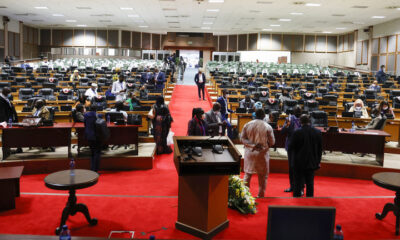
 NEWS12 months ago
NEWS12 months agoKenya supports creation of pan-African court
-

 FINANCE12 months ago
FINANCE12 months agoUS will default if debt deal fails – treasury secretary
-

 FINANCE12 months ago
FINANCE12 months agoGlobal debt balloons to record highs
-
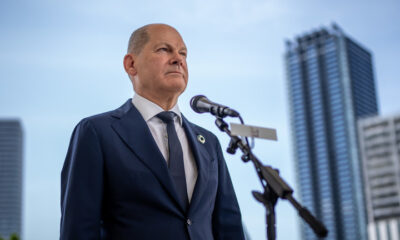
 WAR12 months ago
WAR12 months agoUkraine won’t join NATO anytime soon – Scholz
-

 NEWS12 months ago
NEWS12 months ago‘Subway killer’ Daniel Penny’s actions expose a gap in US law enforcement
-

 NEWS12 months ago
NEWS12 months agoGerman military to sell tons of toilet paper


